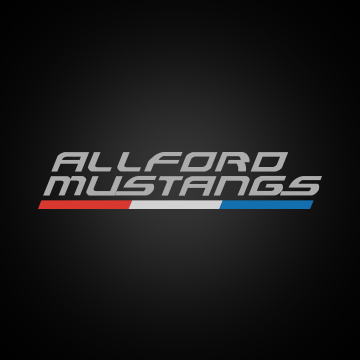Hi Everyone!
It seems like forever since I've been on the forum. Has been months...seems like forever though. Anyways, I have a question about pump gas octane.
Normally I fill the 65 with premium 90 octane vs. midgrade and std 85 octane. So today, our corn seed district sales mgr was up here and he'd been following the restoration of the stang from way back during the mustang trailer days. We had a grower bbq/get together to review corn variety plots and I suggested we take the stang. He happily obliged. The field was out of town about 15 miles and about 1/4 mile off the paved highway. So this made a nice little cruise and the stang was kinda dirty and dusty anyway for the little bit of dirt road driving to be done. But I needed to gas up first.
So I blasted up to the pumps and filled from the one which just has the 85 octane gas. This pump is shared with diesel, so I didn't have a choice on gasoline grades. And no, I didn't put diesel in!!!
We had a good time and after we got back into town, I had to pick up the kid from school, so I took the 65 to gather him up. Well, the car wouldn't hardly idle and was running fairly rough. I think it was partly contributable to the difference in 85 vs 90 octane gas. The cam even sounded sick (not the cool sick). The engine has some mild performance mods, about 9.5:1 compression and runs well on 90 octane. But runs like crud on 85 IMO!
Has anyone else noticed the difference in grades? I know this could be more of a complex issue than this, maybe not. I don't drive the mustang much anyway, so the extra $$$ in premium gas price isn't a concern. However, since I have a full tank of cheap gas in there, I may add some octane booster to see if my theory is correct...
It seems like forever since I've been on the forum. Has been months...seems like forever though. Anyways, I have a question about pump gas octane.
Normally I fill the 65 with premium 90 octane vs. midgrade and std 85 octane. So today, our corn seed district sales mgr was up here and he'd been following the restoration of the stang from way back during the mustang trailer days. We had a grower bbq/get together to review corn variety plots and I suggested we take the stang. He happily obliged. The field was out of town about 15 miles and about 1/4 mile off the paved highway. So this made a nice little cruise and the stang was kinda dirty and dusty anyway for the little bit of dirt road driving to be done. But I needed to gas up first.
So I blasted up to the pumps and filled from the one which just has the 85 octane gas. This pump is shared with diesel, so I didn't have a choice on gasoline grades. And no, I didn't put diesel in!!!
We had a good time and after we got back into town, I had to pick up the kid from school, so I took the 65 to gather him up. Well, the car wouldn't hardly idle and was running fairly rough. I think it was partly contributable to the difference in 85 vs 90 octane gas. The cam even sounded sick (not the cool sick). The engine has some mild performance mods, about 9.5:1 compression and runs well on 90 octane. But runs like crud on 85 IMO!
Has anyone else noticed the difference in grades? I know this could be more of a complex issue than this, maybe not. I don't drive the mustang much anyway, so the extra $$$ in premium gas price isn't a concern. However, since I have a full tank of cheap gas in there, I may add some octane booster to see if my theory is correct...





